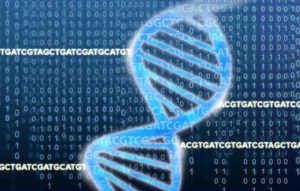 Recently, in-home genetic testing kits, such as 23andMe and Color, were granted FDA authorization to provide direct to consumer, no prescription needed, in-home genetic testing. On the surface, this seems very attractive. Genetic mutations are thought to account for 5-10% of all cancer diagnoses (cancer.gov). As we learn more about how genetics influence our cancer risk, more individuals may want to learn about their own genetic make-up and how to reduce their risk for developing cancer. These tests offer the convenience of performing the test at home. Here are five things you should think about BEFORE undergoing ANY kind of genetic testing.
Recently, in-home genetic testing kits, such as 23andMe and Color, were granted FDA authorization to provide direct to consumer, no prescription needed, in-home genetic testing. On the surface, this seems very attractive. Genetic mutations are thought to account for 5-10% of all cancer diagnoses (cancer.gov). As we learn more about how genetics influence our cancer risk, more individuals may want to learn about their own genetic make-up and how to reduce their risk for developing cancer. These tests offer the convenience of performing the test at home. Here are five things you should think about BEFORE undergoing ANY kind of genetic testing.
1. Genetic testing should NOT be taken lightly.
It isn’t just a simple “spit into a vial” process. Assessing genetic risk also includes taking a complete family and personal health history, as well as counseling and education about the test results, after the test is completed. Genetic counseling and genetic testing go hand in hand. It is essential that you receive education associated with your results, as well as counseling about talking to your family about your results. 23andMe only offers referrals to genetic counselors in your geographic area, not actual counseling services. Color offers “professional genetic counseling.”
2. Genetic testing is complex.
There are over 50 hereditary cancers, each with multiple potential gene mutations. For example, BRCA is associated with a higher risk of ovarian cancer, breast cancer and prostate cancer. These in home kits only test for only three genetic variants associated with BRCA mutations – yet many more exist. The mutations that are included in this test tend to be associated with individuals with Ashkenazi Jewish heritage. While these tests may be helpful for people from this population, others who undergo the test may receive a false sense of security with a negative test result. It doesn’t necessarily mean the test is negative and you don’t have the mutation—it just means you don’t have one of these three mutations. These tests do not test for any other cancer related gene mutations.
3. Genetic testing IS typically covered by insurance, if you have a strong family history that suggests higher cancer risk.
23andMe and Color are not covered by insurance. The current cost for 23andMe is $199 (this includes more than just cancer targeted genetic testing for BRCA mutations), for Color it is $99 (this is only for BRCA mutations).
Under the Affordable Care Act (ACA), genetic testing for BRCA 1 and 2 must be covered by insurance plans when there is a strong family history of BRCA associated cancers.
4. Privacy and confidentiality guidelines for health protected information may be questionable with in-home testing kits.
The test results generated by 23andMe and Color are maintained by these companies. They are not part of your medical record and thus MAY NOT be covered under HIPPA guidelines. While this company does not share your genetic test results, they can sell your personal information to third parties who may want to include you in research or market other products to you.
5. Genetic testing results are protected under the Genetic Information Nondiscrimination Act (GINA).
GINA protects family health history, the results of genetic tests, the use of genetic counseling/genetic services and individuals participating in genetic research from being discriminated against by health insurers or employers. This includes results from in-home testing kits. However, genetic testing information is not protected by GINA if you are attempting to purchase life insurance. Genetic information CAN be used during the medical investigation/under-writing process for a life insurance policy..
Talk to your healthcare provider before undergoing ANY genetic testing. Ask questions about your risk, your family history, and your own personal behaviors that may influence your cancer risk. While 23andMe and Color may offer a “jumping off point” or introduction to testing for genetic mutations, they are hardly foolproof and may produce false negatives and/or misinformation. Ultimately, it is buyer beware with in home genetic testing and an educated consumer “is the best customer.”
For more information about genetic risk and cancer, visit Facing our Risk of Cancer Empowered (FORCE).
For more information on in-home genetic tests, visit these resources:
At-home genetic testing may be convenient, but it isn’t complete, written by Susan Domchek, MD
Podcast from ASCO, Direct-to-Consumer Genetic Testing: What to Know
Greetings! Very useful things in this particular article! It’s the little changes that make the biggest changes. Thanks a lot for sharing!
I didn’t know you could do this yourself. Thank you for the information.